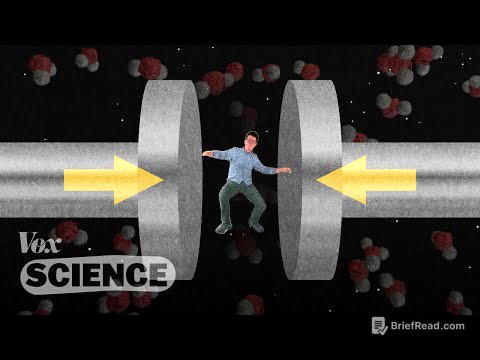TLDR;
This discussion explores the emerging field of quantum biology, which investigates how quantum mechanics plays a role in living systems. The speakers address the initial skepticism surrounding the idea due to the hot, wet, and noisy environment of cells, which would seem to disrupt quantum coherence. They discuss how organisms might exploit quantum phenomena like superposition and coherence to gain advantages in processes like photosynthesis and navigation. The conversation also touches on the potential for biology to inspire new approaches to quantum computing by demonstrating how to maintain coherence in complex environments.
- Quantum biology explores the intersection of quantum mechanics and biological systems.
- Initial skepticism existed due to the seemingly decoherent environment of cells.
- Organisms may exploit quantum phenomena for advantages in processes like photosynthesis and navigation.
- Biology could inspire new approaches to quantum computing by demonstrating coherence in complex environments.
Introduction to Quantum Biology [0:13]
The discussion begins with an introduction to quantum biology (QB), a field that explores the intersection of quantum mechanics and biology. The presenter jokes about the anxieties physicists have regarding quantum mechanics, highlighting its counterintuitive nature, such as particles behaving like waves and the inherent unpredictability it introduces. He suggests that biological entities, with their understanding of the universe's quirks, might offer a fresh perspective to physicists struggling with these concepts. The presenter sets the stage for exploring how quantum mechanics influences biological systems, using examples like bird navigation and photosynthesis to illustrate the concrete ways in which quantum phenomena manifest in life.
Convergence of Biology and Quantum Mechanics [7:45]
The panel discusses the convergence of biology and quantum mechanics, emphasizing that life is made of atoms, which inherently follow quantum mechanics. Paul Davies clarifies that quantum biology is not just about the quantum mechanical properties of molecules but about the "creepy, weird stuff" like tunneling and entanglement playing a role in biological processes. He argues that life's long existence has allowed organisms to evolve and exploit quantum phenomena for advantages, even if those advantages are small. Seth Lloyd acknowledges the initial skepticism towards quantum biology, given the weirdness of quantum mechanics, but notes that organisms will adopt any process, quantum or not, that enhances their reproductive efficiency. Thorsten Ritz explains that quantum mechanics defies classical notions of distance and time, allowing for phenomena like superposition, where a particle can be in multiple places at once, offering options not available in classical mechanics.
Coherence and Decoherence in Biological Systems [13:51]
The panel explores the concept of coherence, which is essential for observing quantum effects. Paul Davies uses the analogy of dropping stones in a pond to illustrate how waves can either add together or cancel out, and how disturbances can disrupt this coherence. He explains that in quantum mechanics, maintaining coherence is crucial for observing quantum effects. Decoherence, on the other hand, refers to the loss of coherence due to external interference, such as the noisy environment of a biological cell. Seth Lloyd points out that the surprising aspect of quantum biology is the evidence that quantum mechanics plays a significant role in biological systems despite the hot, wet, and noisy conditions of cells, which would theoretically be hostile to quantum coherence.
Quantum Computing and Biological Systems [17:21]
The discussion shifts to the potential connection between quantum computing and biological systems. The panel explores whether biological systems create coherent states to perform their own form of quantum computing. Thorsten Ritz expresses hope that studying biology could provide insights into creating such states in hot and wet environments, potentially inspiring new approaches to quantum computing. The conversation suggests a reciprocal relationship where understanding how biology maintains coherence could inform the development of more robust quantum technologies.









